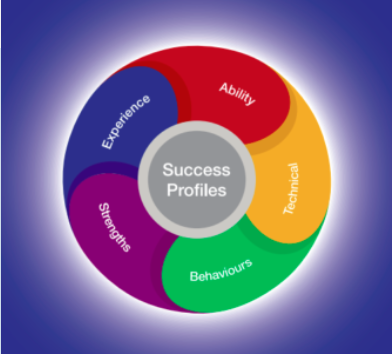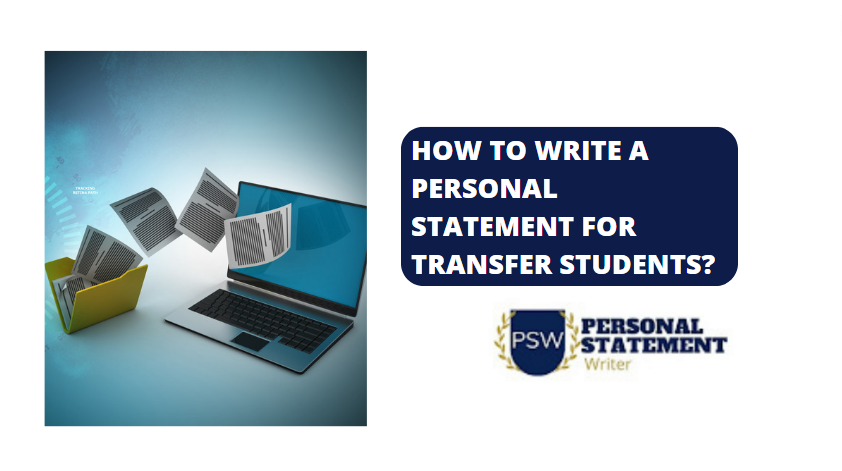

750 Word Personal Statement Sample
by Talha Omer, MBA, M.Eng., Harvard & Cornell Grad
In personal statement samples by word limits.
A personal statement is an integral part of any university application. Some programs have strict word limits in place, while others do not have any word limits. Here is an example of a 750-word limit personal statement that was admitted to top programs in the US and Canada.
750 Word Personal Statement Example
Being born and raised in a small village in Indonesia, my younger self could never have imagined that I would be standing where I am today. With farming and trade being the primary earning business within my family, education was never a priority. There were designated roles to be fulfilled by each gender, and if I fulfilled them, there were no other expectations of me. I was never encouraged to achieve more than I already had and was never taught how to plan for my future. There was no career guidance or information on which university to apply to and how to do it. I was not even aware that subjects such as philosophy and psychology existed.
“Blissfully unaware of the struggles of the future” applied to me plenty. Because of this nonchalance, I had to put in twice as much effort later in my professional life. My self-esteem spiraled down when I left my village to pursue higher education. In the alienating classroom environment, I began to fail in almost every subject and activity. My self-confidence shattered. The English language needed to be more decipherable for me, and the students were far from friendly to newcomers like me. It took me several lunch breaks, extra help from teachers, and endless hours in the library to ensure that I would catch up.
When the time came to apply to an undergrad program, I was presented with a choice. I could either quit my education and walk on the well-trodden road that leads to a non-challenging life or continue to struggle on my own to a seemingly unknown destination where the chances of failure were far greater. I chose the latter. I preferred to trudge through the rocky terrain of the unknown and decided to stick to it no matter how many times I would fall. Today, as I write this essay, I am sitting at a desk in my office, being the first female in my family to have secured employment on her own at a multinational IT company. I had even won a scholarship for one semester on the UGRAD exchange program in the United States, a privilege that not anyone in my home village had granted.
Despite this, I am aware of my shortcomings. I always had to tread a fine line between the goals and ambitions I had crafted for myself and my family’s expectations. Where my classmates went for extra-curricular activities and participated in clubs and research groups, I was not allowed to do any of that. A constant threat of disownment for staying away from home for an extended period hung on my head. With such strict curfews implemented, I had to become very creative with my schedule. I calculated every minute of my time on campus to ensure maximum productivity. When not attending classes, I was fulfilling my duties as a teacher’s assistant, conducting tutorial sessions for the first-year class and organizing lectures for senior-year students. I started participating in different gaming competitions and joined different societies as an administrator. I pushed myself to try and work harder than others because I was no longer going to sit back and let circumstances decide my path.
When graduation came, I knew very late that I would not be joining my classmates in the ceremony, for I had missed a straightforward course in my rush to take over the world. By then, I had already accepted full-time employment at Microsoft. Thus, again I began my race against time by taking a three-hour class in the morning, followed by nine hours of work, and afterward dealing with the demands of my family. But it was worth the effort, for when in class, I could learn so many new things, and when at work, I could work away on my coding applications and would not even realize that time had passed.
Continuously evolving and coding have become my two biggest passions, and I will not give them up for all the hardships in the world. My objective is to become a computer science specialist. Using my expertise in computer systems, I will build on my knowledge and study advanced engineering concepts at the graduate level. Silicon Valley is the CS hub of the world. During my studies, I would also like to work part-time with start-ups to gain valuable industrial experience. Aside from academics, as a swimmer, I look forward to joining the department swimming club to compete and train with the best that UCLA offers.
WANT MORE AMAZING ARTICLES ON GRAD SCHOOL PERSONAL STATEMENTS?
- 100+ Outstanding Examples of Personal Statements
- The Ultimate Guide to Writing a Winning Personal Statement
- Common Pitfalls to Avoid in Your Personal Statement
- Writing a Killer Opening Paragraph for Your Personal Statement
- Ideal Length for a Graduate School Personal Statement
- 100 Inspiring Quotes to Jumpstart Your Personal Statement
100 Word Personal Statement Sample
A personal statement is an integral part of any university application. Some programs have strict word limits in place, while others do not have any word limits. Here is an example of a 100-word limit personal statement that was admitted to top programs in the US and...
150 Word Personal Statement Sample
A personal statement is an integral part of any university application. Some programs have strict word limits in place, while others do not have any word limits. Here is an example of a 150-word limit personal statement that was admitted to top programs in the US and...
800 Word Personal Statement Sample
A personal statement is an integral part of any university application. Some programs have strict word limits in place, while others do not have any word limits. Here is an example of a 800-word limit personal statement that was admitted to top programs in the US and...
1000 Word Personal Statement Sample
A personal statement is an integral part of any university application. Some programs have strict word limits in place, while others do not have any word limits. Here is an example of a 1000-word limit personal statement that was admitted to top programs in the US and...
700 Word Personal Statement Sample
A personal statement is an integral part of any university application. Some programs have strict word limits in place, while others do not have any word limits. Here is an example of a 700-word limit personal statement that was admitted to top programs in the US and...
WANT AMAZING ARTICLES ON GRAD SCHOOL PERSONAL STATEMENTS?
- 100+ Personal Statement Templates
- Features for Creative Writers
- Features for Work
- Features for Higher Education
- Features for Teachers
- Features for Non-Native Speakers
- Learn Blog Grammar Guide Community Events FAQ
- Grammar Guide
How to Write a Personal Statement (with Tips and Examples)

Hannah Yang

Table of Contents
What is a personal statement, 6 tips on how to write a personal statement, personal statement examples (for college and university), faqs about writing personal statements, conclusion on how to write a personal statement.
How do you tell someone who you are in just a few hundred words?
It’s certainly no easy task, but it’s one almost every college applicant must do. The personal statement is a crucial part of any college or university application.
So, how do you write a compelling personal statement?
In this article, we’ll give you all the tools, tips, and examples you need to write an effective personal statement.
A personal statement is a short essay that reveals something important about who you are. It can talk about your background, your interests, your values, your goals in life, or all of the above.
Personal statements are required by many college admission offices and scholarship selection committees. They’re a key part of your application, alongside your academic transcript, standardized test scores, and extracurricular activities.
The reason application committees ask you to write a personal statement is so they can get to know who you are.
Some personal statements have specific prompts, such as “Discuss a period of personal growth in your life” or “Tell us about a challenge or failure you’ve faced.” Others are more open-ended with prompts that essentially boil down to “Tell us about yourself.”
No matter what the prompt is, your goal is the same: to make yourself stand out to the selection committee as a strong candidate for their program.
Here are some things a personal statement can be:
It can be funny. If you have a great sense of humor, your personal statement is a great place to let that shine.
It can be vulnerable. Don’t be afraid to open up about hardships in your life or failures you’ve experienced. Showing vulnerability can make you sound more like a real person rather than just a collection of application materials.
It can be creative. Candidates have got into top schools with personal statements that take the form of “a day in the life” descriptions, third-person short stories, and even cooking recipes.
Now we’ve talked about what a personal statement is, let’s quickly look at what a personal statement isn’t:
It isn’t a formal academic paper. You should write the personal statement in your natural voice, using first-person pronouns like “I” and “me,” not in the formal, objective language you would use to write an academic paper.
It isn’t a five-paragraph essay. You should use as many paragraphs as you need to tell your story instead of sticking to the essay structure you learned in school.
It isn’t a resumé. You should try to describe yourself by telling a clear and cohesive story rather than providing a jumbled list of all of your accomplishments and ambitions.

Here are our top six tips for writing a strong personal statement.
Tip 1: Do Some Serious Self-Reflection
The hardest part of writing a personal statement isn’t the actual process of writing it.
Before you start typing, you have to figure out what to write about. And that means taking some time to reflect on who you are and what’s important in your life.
Here are some useful questions you can use to start your self-reflection. You can either answer these on your own by writing down your answers, or you can ask a trusted friend to listen as you talk about them together.
What were the key moments that shaped your life? (e.g. an important friendship, a travel experience, an illness or injury)
What are you proud of? (e.g. you’re a good listener, you always keep your promises, you’re a talented musician)
How do you choose to spend your time? (e.g. reading, practicing soccer, spending time with your friends)
What inspires you? (e.g. your grandmother, a celebrity, your favorite song)
Doing this self-reflection is crucial for figuring out the perfect topics and anecdotes you can use to describe who you are.
Tip 2: Try to Avoid Cliché Topics
College application committees read thousands of personal statements a year. That means there are some personal statement topics they see over and over again.
Here are a few examples of common personal statement topics that have become cliché:
Winning a tournament or sports game
Volunteering in a foreign country
Moving to a new home
Becoming an older sibling
Being an immigrant or having immigrant parents
If you want to make a strong impression in the application process, you need to make your personal statement stand out from the crowd.
But if your chosen personal statement topic falls into one of these categories, that doesn’t necessarily mean you shouldn’t use it. Just make sure to put a unique spin on it so it still delivers something the committee hasn’t seen before.

Good writing = better grades
ProWritingAid will help you improve the style, strength, and clarity of all your assignments.
Tip 3: Show, Don’t Tell
One common mistake you might make in your personal statement is to simply tell the reader what you want them to know about you, such as by stating “I have a fear of public speaking” or “I love to cook.”
Instead of simply stating these facts, you should show the committee what you’re talking about through a story or scene, which will make your essay much more immersive and memorable.
For example, let’s say you want the committee to know you overcame your fear of public speaking. Instead of writing “I overcame my fear of public speaking,” show them what it was like to be onstage in front of a microphone. Did your palms get clammy? Did you feel light-headed? Did you forget your words?
Or let’s say you want the committee to know you love to cook. Instead of writing “I love to cook,” show them why you love to cook. What’s your favorite dish to cook? What does the air smell like when you’re cooking it? What kitchen appliances do you use to make it?
Tip 4: Connect the Story to Why You’re Applying
Don’t forget that the purpose of your personal statement isn’t simply to tell the admissions committee who you are. That’s an important part of it, of course, but your ultimate goal is to convince them to choose you as a candidate.
That means it’s important to tie your personal story to your reasons for applying to this specific school or scholarship. Finish your essay with a strong thesis.
For example, if your story is about overcoming your fear of public speaking, you might connect that story to your ambition of becoming a politician. You can then tie that to your application by saying, “I want to apply to this school because of its fantastic politics program, which will give me a perfect opportunity to use my voice.”
Tip 5: Write in Your Own Voice
The personal statement isn’t supposed to be written in a formal tone. That’s why they’re called “personal” statements because you have to shape it to fit your own voice and style.
Don’t use complicated or overwrought language. You don’t need to fill your essay with semicolons and big words, unless that’s how you sound in real life.
One way to write in your own voice is by speaking your personal statement out loud. If it doesn’t feel natural, it may need changing.
Tip 6: Edit, Edit, Edit!
It’s important to revise your personal statement multiple times in order to make sure it’s as close to perfect as possible.
A single typo won’t kill your application, but if your personal statement contains multiple spelling errors or egregious grammar mistakes, you won’t be putting your best foot forward.
ProWritingAid can help you make sure your personal statement is as clean as possible. In addition to catching your grammar errors, typos, and punctuation mistakes, it will also help you improve weaknesses in your writing, such as passive voice, unnecessary repetition, and more.
Let’s look at some of the best personal statements that have worked for successful candidates in the real world.
Harvard Personal Statement Example
Love. For a word describing such a powerful emotion, it is always in the air. The word “love” has become so pervasive in everyday conversation that it hardly retains its roots in blazing passion and deep adoration. In fact, the word is thrown about so much that it becomes difficult to believe society isn’t just one huge, smitten party, with everyone holding hands and singing “Kumbaya.” In films, it’s the teenage boy’s grudging response to a doting mother. At school, it’s a habitual farewell between friends. But in my Chinese home, it’s never uttered. Watching my grandmother lie unconscious on the hospital bed, waiting for her body to shut down, was excruciatingly painful. Her final quavering breaths formed a discordant rhythm with the steady beep of hospital equipment and the unsympathetic tapping hands of the clock. That evening, I whispered—into unhearing ears—the first, and only, “I love you” I ever said to her, my rankling guilt haunting me relentlessly for weeks after her passing. My warm confession seemed anticlimactic, met with only the coldness of my surroundings—the blank room, impassive doctors, and empty silence. I struggled to understand why the “love” that so easily rolled off my tongue when bantering with friends dissipated from my vocabulary when I spoke to my family. Do Chinese people simply love less than Americans do?
This is an excerpt from a personal statement that got the applicant admitted to Harvard University. The applicant discusses her background as a Chinese-American by musing on the word “love” and what that means within her family.
The writer uses vulnerable details about her relationship with her grandmother to give the reader an understanding of where she comes from and how her family has shaped her.
You can read the full personal statement on the Harvard Crimson website.
Tufts Personal Statement Example
My first dream job was to be a pickle truck driver. I saw it in my favorite book, Richard Scarry’s “Cars and Trucks and Things That Go,” and for some reason, I was absolutely obsessed with the idea of driving a giant pickle. Much to the discontent of my younger sister, I insisted that my parents read us that book as many nights as possible so we could find goldbug, a small little golden bug, on every page. I would imagine the wonderful life I would have: being a pig driving a giant pickle truck across the country, chasing and finding goldbug. I then moved on to wanting to be a Lego Master. Then an architect. Then a surgeon. Then I discovered a real goldbug: gold nanoparticles that can reprogram macrophages to assist in killing tumors, produce clear images of them without sacrificing the subject, and heat them to obliteration. Suddenly the destination of my pickle was clear. I quickly became enveloped by the world of nanomedicine; I scoured articles about liposomes, polymeric micelles, dendrimers, targeting ligands, and self-assembling nanoparticles, all conquering cancer in some exotic way. Completely absorbed, I set out to find a mentor to dive even deeper into these topics. After several rejections, I was immensely grateful to receive an invitation to work alongside Dr. Sangeeta Ray at Johns Hopkins.
This is the beginning of a personal statement by Renner Kwittken, who was admitted into Tufts University as a pre-medical student.
Renner uses a humorous anecdote about being a pickle truck driver to describe his love for nanomedicine and how he got involved in his field. You can feel his passion for medicine throughout his personal statement.
You can find Renner’s full essay on the Tufts Admissions page.
Law School Personal Statement Essay Example
For most people, the slap on the face that turns their life around is figurative. Mine was literal. Actually, it was a punch delivered by a drill sergeant at Fort Dix, New Jersey, while I was in basic training. That day’s activity, just a few weeks into the program, included instruction in “low-crawling,” a sensible method of moving from one place to another on a battlefield. I felt rather clever for having discovered that, by looking right rather than down, I eliminated my helmet’s unfortunate tendency to dig into the ground and slow my progress. I could thus advance more easily, but I also exposed my unprotected face to hostile fire. Drill sergeants are typically very good at detecting this type of laziness, and mine was an excellent drill sergeant. So, after his repeated suggestions that I correct my performance went unheeded, he drove home his point with a fist to my face. We were both stunned. This was, after all, the New Army, and striking a trainee was a career-ending move for a drill sergeant, as we were both aware. I could have reported him; arguably, I should have. I didn’t. It didn’t seem right for this good sergeant, who had not slept for almost four days, to lose his career for losing his temper with my laziness. Choosing not to report him was the first decision I remember making that made me proud.
These are the first three paragraphs of an anonymous personal statement by a Wheaton College graduate, who used this personal statement to get into a top-25 law school.
This statement describes a time the applicant faced a challenging decision while in the army. He ended up making a decision he was proud of, and as a result, the personal statement gives us a sense of his character.
You can find the full essay on the Wheaton Academics website.
Here are some common questions about how to write a personal statement.
How Long Should a Personal Statement Be?
The length of your personal statement depends on the specific program you’re applying to. The application guidelines usually specify a maximum word count or an ideal word count.
Most personal statements are between 500–800 words. That’s a good general range to aim for if you don’t have more specific guidelines.
Should Personal Statements Be Different for Scholarships?
Many scholarship applications will ask for personal statements with similar prompts to those of college applications.
However, the purpose of a personal statement you’d write for a scholarship application is different from the purpose of one you’d write for a college application.
For a scholarship application, your goal is to showcase why you deserve the scholarship. To do that, you need to understand the mission of the organization offering that scholarship.
For example, some scholarships are meant to help first-generation college students get their degree, while others are meant to help women break into STEM.
Consider the following questions:
Why is this organization offering scholarships?
What would their ideal scholarship candidate look like?
How do your experiences and goals overlap with those of their ideal scholarship candidate?
You can use the same personal anecdotes you’d use for any other personal statement, but you’ll have a better chance of winning the scholarship if you tailor your essay to match their specific mission.
How to Start a Personal Statement
You should start your personal statement with a “hook” that pulls the reader in. The sooner you catch the reader’s attention, the more likely they’ll want to read the entire essay.
Here are some examples of hooks you can use:
A story (e.g. When the spotlight hit my face, I tried to remind myself to breathe. )
A setting description (e.g. My bedroom floor is covered with dirty laundry, candy wrappers, and crumpled sheet music. )
A funny anecdote (e.g. When I was a little kid, my friends nicknamed me Mowgli because of my haircut. )
A surprising fact (e.g. I've lived in 37 countries .)
There you have it—our complete guide to writing a personal statement that will make you stand out to the application committee.
Here’s a quick recap:
A personal statement is a short essay that shows an application committee who you are
Start with a strong hook that pulls the reader in
Tell a story to engage the reader
Write in your own voice, not in a formal tone
Good luck, and happy writing!
Hannah is a speculative fiction writer who loves all things strange and surreal. She holds a BA from Yale University and lives in Colorado. When she’s not busy writing, you can find her painting watercolors, playing her ukulele, or hiking in the Rockies. Follow her work on hannahyang.com or on Twitter at @hannahxyang.
Get started with ProWritingAid
Drop us a line or let's stay in touch via :
Cookies on Civil Service Careers Site
We use some essential cookies to make this service work.
We’d like to set additional cookies so we can remember your settings, understand how people use the service and make improvements.
You’ve accepted additional cookies. You can change your cookie settings at any time.
You’ve rejected additional cookies. You can change your cookie settings at any time.

The Civil Service
- What is the Civil Service
- Working for the Civil Service
- Our Locations
- Civil Service Networks
What do Civil Servants say?
- Inderjit's life at DFE Inderjit Sanghera is a Change and Engagement Lead at DfE and Co-Chair of the BAME Network.
- Alfonso's life in Cyber Security Alfonso Greenbrook is a former Level 4 Apprentice in Cyber Security Monitoring. He now works in Security and Data Protection in DWP.
- Alison and Dave's life in HMRC Hear from Alison and Dave about what it's like to work within Customer Strategy & Tax Design in HMRC

Early Careers
- Apprenticeships
- Care Leavers Internship Scheme
- Civil Service Fast Stream
- Summer Internship Programme
- Ministry of Justice Unlocked Graduates
Experienced Hires
- Executive Leadership
- Contracting Opportunities
- Evidence House
Supported Schemes
- Prison Leaver Recruitment
- Going Forward into Employment

Applying for a Job
- About the application process
How to write your CV
How to write your personal statement.
- Civil Service Behaviours
- Assessments and Interviews

Supporting your Application
- Great Place to Work for Veterans
- Disability Confident Scheme

Find opportunities that work for you...
Interested in knowing what apprenticeships are available?
Share your feedback, help us improve this site

Your personal statement
The purpose of a personal statement is to showcase your relevant skills and experience against the job requirements. The statement is your opportunity to give examples of how you fit the requirements of the job. When writing a personal statement it is important that you:

- Read the job specification so you are clear about the job requirements.
- Outline the skills and experience that you have that are relevant to the job and use examples to help demonstrate this. Wherever possible include specific facts and figures that demonstrate the tangible results of your work.
- Keep to the word limit. If your statement is too brief it will not provide the required depth of detail and evidence to be assessed fully.
- Proofread your statement before submitting it to make sure it is clear, easy to read and relevant.
How we recruit

For some jobs, you will be asked to provide a CV (curriculum vitae) as part of your application. Here you can find information on how to write the best CV.

The Civil Service Behaviours are one element of the Success Profile. These are the things that people do that result in effective performance. Read more about why we use Behaviours to assess you here.

Assessments and interviews
The recruitment process, and what evidence is asked for, varies depending on the job you are applying for. Here you can read about the different stages of recruitment.

Success Profiles guides
GOV.UK hosts a huge amount of detailed guidance on the different elements of Success Profiles.
Latest News
- Climate Change
- Economic Growth
- Covid & Vaccination Strategy
- Infrastructure
- View all Growth & Sustainable Development
- Artificial Intelligence
- Digital Transformation
- Digital Identity
- Digital Infrastructure
- Cybersecurity & Crime
- View all Digital, Data & Technology
- Policy Development
- Project Management
- Governance & Government Intervention
- Public Services
- View all Public Policy Design & Delivery
- Supply Chain
- Public Finance
- Government Finance & Accounting
- View all Procurement and Finance Collaboration
- Homeland Security
- Foreign Policy
- International Law & Diplomacy
- View all Security & Foreign Policy
- Public Service Pay & Benefits
- Public Service Pensions
- View all HR, Pay & Benefits
- Mental Health at Work
- Future of Work
- View all Workplace Wellbeing
- Global Government Women’s Network
- Public Service Career & Professions
- Talent Management & Retention
- Career Development, Skills & Training
- View all Public Service Recruitment
- Leadership & Reform
- Risk Management & Prevention
- Transparency, Accountability & Collaboration
- Government communications
- View all Public Service Leadership & Management
- North America
Asia Pacific
- Latin America
- Middle East
- Learning & Development
- In-House/Bespoke Training Courses
- Trainer biographies
- About our Training
- Government Transformed
- Leading Questions
A guide to personal statements for public and civil service jobs: how to sell yourself, both on application forms and in person

Recruiting managers may have to sift through hundreds or even thousands of applications, while i nterviewers are likely to be meeting multiple candidates. So how do you ensure you stand out from the crowd? Writing a short but perfectly formed personal statement or selling yourself at interview in just a few well-chosen words could make all the difference. Danielle Littlejohn tells you how
A personal statement is a summary of what you offer an employer whether you’re a school leaver, graduate, or an established career mover. By condensing your experience and skills into a few sentences, the aim is to highlight what sets you apart from others whether you are applying for a new role and writing a personal statement to go with your CV, or relaying your experience during an interview or more relaxed meeting. These days we need to be able to promote our professional worth in just one or two minutes.
Be it a written or verbal personal statement, recruiting managers and interviewers are looking for a short, sharp clarification of who you are, what makes you stand out, and what makes you the best person for the job.
Not everyone knows the term ‘elevator pitch’ but I have always quite liked the analogy. If you found yourself in a lift with the employer of your dreams and had only the time it takes to travel a few floors, how would you sell yourself? Ideally, you should incorporate your personal values, and unique selling point (USP), as well as skills and experience. It can be the clincher in an employer’s mind as to your organisational fit so it can be the perfect thing to say at the beginning of the interview when you are asked: “So tell me a little about yourself”.
These days, our careers and their progression can be quite fluid. When you’re looking to move forward, it’s advisable to hone your skillsets and have clear aspirations of where you want them to take you. To paraphrase the Cheshire Cat from Alice in Wonderland, when she finds herself lost in the woods and asks directions: “If you don’t know where you are going, how are you going to know when you get there?”
How to structure a written personal statement
Lucy Ventrice, senior HR business partner at Amazon, suggests you start by creating a ‘mind map’ of both yourself and one of your potential employers. By comparing the two, you will have something to build from and an idea of what they are looking for, enabling you to make the application bespoke.
In the opening sentence, you want to grab the reader so it should include your job title, number of years’ experience, expertise, and some positive or active ‘hook’ words. Your personal statement will obviously vary according to where you are in your career. If you have achievements that are relevant to the employer, it’s an idea to mention these briefly. It’s a good idea to give an idea of what you’re looking for in the closing sentence, for example, specific goals and why you would like to work for that employer.
Beyond that we want to keep the personal statement as concise as possible without jargon or repetition and with a real focus on grammar and spelling.
Pinning down your elevator pitch face-to-face
In the same way as written personal statements, an elevator pitch should be a quick synopsis of your background and experience but, as it is generally delivered face-to-face, it should be more relaxed and affords us the opportunity to inject a little more personality into it.
It is great to have something up your sleeve for job fairs, networking events and other professional activities as it sounds corporate, explains you in the terms they are after, and gives you a head start on something to say about yourself rather than getting tongue-tied.
As this is verbal, we need to think about our delivery and particularly not speaking too fast, so keep it short – ideally up to one minute.
Ensure you have some intonation and that you’re not rambling. Be aware of our body language. You should be approachable without being overbearing – don’t frown, don’t slouch.
As with any public speaking, it is a good idea to have something practised and polished that can be adapted on the spot to suit the audience or individual you are talking to.
Dos and don’ts for personal statements
- Do highlight what sets you apart.
- Do make it relevant – tailor to the person or role in question.
- Do be specific (on what can you offer) and succinct (two-three sentences).
- Do make it engaging – think about your hook.
- Do be passionate.
- Don’t be negative.
- Don’t exaggerate or embellish.
Like this story? Sign up to Global Government Forum’s email news notifications to receive the latest updates in your inbox .
Danielle Littlejohn provides a range of professional development courses as part of Global Government Forum’s training portfolio. Courses she runs include Delivering Results at Work – Essential Success Skills for New Managers , Creating and Growing a Productive Team – Interviewer Skills and Breaking Through the Glass Ceiling .
About Danielle Littlejohn
Danielle Littlejohn provides a range of professional development courses as part of Global Government Forum’s training portfolio. Courses she runs include Delivering Results at Work – Essential Success Skills for New Managers, Creating and Growing a Productive Team – Interviewer Skills and Breaking Through the Glass Ceiling.
Related Posts

Your email address will not be published. Required fields are marked *
As governments around the world look to deliver digitally-enabled services,...
- Posted July 14, 2023
Welcome to this month’s Global Government Forum Sustainability Monitor, bringing...
- Posted May 14, 2024
Canada’s Public Service Data Challenge neatly addresses the barriers to...
- Posted May 13, 2024
For those at the top of government, crises are growing...
- Posted May 12, 2024
Global Government Forum’s weekly news roundup of public service intelligence ...
- Posted May 9, 2024
Welcome to the latest edition of the Global Government Women’s...
A city in Massachusetts has broken new ground for US...
- Posted May 8, 2024
Welcome to this month’s Global Government Forum Management and Workforce...
- Posted May 7, 2024

Partner content

Related events

- About Events
- Content Advisory Board
- Digital Publishing
- Our Writers
- Privacy Policy
- Terms & Conditions
- Research Terms and Conditions
- Leading Questions Podcast
- White Papers
- Women Leaders Index
- Responsive Government Survey
- Global Government Fintech
Popular Public Bodies
- Government Digital Service
- HM Treasury
- Cabinet Office
USA & Canada
- Australia Public Service
Global Government Forum Events
- Free Webinars
- Digital Summit
- Finance Summit
- Global Government Summit
- Leaders Forum
- Putting Citizens First
© 2024 GlobalGovernmentForum.com
- Skip to content
- About Accessibility on our website

- Staff Directory
- Personal statements
- University Home
- Careers and Employability Service
- CVs and Interviews
Personal statements for postgraduate applications provide an opportunity for you to show your motivation and suitability for the degree programme. Our resources and mini courses give you tips on how to create statements with real impact.
- Thoroughly research your chosen degree programme (core courses and elective options) and institution.
- Don’t rush: give yourself plenty of time to complete your personal statement. This may take several drafts.
- Follow the instructions: take careful note of word counts and other guidelines.
A good personal statement usually includes:
- An opening paragraph which starts with a good strong opening statement and explains why you have decided to apply.
- Information on your relevant studies and how this new programme will build on your existing knowledge.
- A summary of any relevant work and/or volunteering experience.
- How this programme will help you in realising your career goals.
- A conclusion which sums up what you have to offer and why you want to study at that particular institution.
You can organise your information in different ways but following the order above should give you a good logical structure and flow.
If you are given guidance on the length and content of your statement, ensure that you follow this carefully. If no guidance is given, we recommend to aim for no more than one and half pages (around 500-750 words).
Once you have drafted your personal statement and double checked the spelling and grammar, we can provide feedback on the content, quality and impact of your document. Please either book an appointment with the subject specialist Adviser or use our Virtual Adviser Service for this.

Civil Service Personal Statement Examples
Different types of statements.
Personal statements are usually required when applying for jobs within the public sector. These are often called “personal statements” because they are written about your personality, skills, experience, education, and any other relevant information.
If you are applying for a job in another sector, then you will need to provide a Statement of Suitability (or SOS) instead.
- A Statement of Suitability (also known as an “employment reference”) is a document that describes your suitability for employment in a particular organisation. You will probably be given a copy of this document at the interview if you are successful.
- A Behaviour Statement is a document that describes your character traits, personality, and skills. It should be written using the STAR Method. It is not a CV or resume, it is an outline of your character and what you bring to the table. It should be tailored to each position you apply for.
Why Does The Civil Service Request Personal Or Suitability Statements?
When applying for any civil service job, you will need to complete a personal statement that needs to be assessed against the relevant civil service success profiles and strengths that apply to the role.
You should also consider your own personal experiences and achievements when writing your personal statement.
What Should A Civil Service Personal Statement Include?
A personal statement is an opportunity to highlight why you are suitable for a particular position. You should tailor your personal statement to complement your CV and show that you meet the essential criteria for the role.
The essential criteria will be outlined in the adverts or job descriptions. Use these to showcase your relevant experience and transferable skills.
Remember, when writing your personal statement, you need to focus on what you did, not why you did it. Focus on the skills you have gained and how you applied them. Showcase your achievements and explain how you learnt the skills. Use examples of how you were successful at applying the skill.
How To Structure A Civil Service Personal Statement?
The most essential thing to do is to structure the response clearly and ensure that your response focuses on the essential criteria.
You may use headings or bullets if this works best for your response. Remember that all of this will eat away at your word count.
How To Write a Civil Service Personal Statement for Jobs
When applying for a civil service role, your personal statement should not just highlight your skills and experience but also show what kind of person you are.
You may think that your CV is all about your qualifications and achievements, but there are other aspects that will help recruiters understand if you’re right for the job.
Your personal statement should demonstrate your interest in the position, your motivation to work in public service and your commitment to serving the public. If you’re unsure about what to write, here are some tips to get you started.
What To Include In A Civil Service Personal Statement
- A civil service personal statement should start by explaining why you want to apply for the position. This will help you stand out from the crowd and give recruiters an insight into your personality.
- Next, you need to explain why you’re qualified for the role. Make sure you highlight any relevant experience you’ve gained throughout your career and point out the skills you’d bring to the table.
- Finally, you need to talk about why you think you’ll fit in at the company. If you mention something about the culture of the organisation, this could really help you get noticed.
Try to show how your skills were acquired through your previous work experience. Practicing what you’ve done before will help you stand out from other candidates.
You should also mention why you want to change jobs, and what you hope to gain from the position. Your resume should have at least three pages, and if possible, four.
Share Relevant Skills Experience Or Interests
In the body paragraph of your statement, consider the following topics when writing about yourself:
1) What skills do you bring to the table? How will those skills help the company?
2) Why should the hiring manager hire you?
Achievement:
Mention any degrees or certifications you have earned and describe how they qualify you for this role. Civil Service jobs often require education and/or certification, so check out the requirements listed in the job description.
If you have relevant experience, share what you did before working at the company. This will help demonstrate your skills and knowledge.
Experience:
Share specific details about previous experiences, including job duties similar in nature to those required for the role you’re applying for. You may also want to highlight why you chose to leave your last employer.
This will give potential employers insight into your background and interests, as well as provide them with an opportunity to ask questions about your past experiences.
Special skills:
Share what you bring to the table. What sets you apart? How will you add value to the company? Explain why you’re interested in joining the team.
Show your enthusiasm and passion for the company and its products.
Professional Goals:
Be specific about your long term goals and how this position aligns with them. Describe what you hope to achieve in the next year.
Explain Why You’re Applying For The Job
At the end of your statement, summarize your qualifications and reiterate your enthusiasm for the job.
You should also mention how you can help the government by working in this position and how you can benefit the public sector by doing so.
Writing The Perfect Civil Service Personal Statement
The civil service success profile of seeing the bigger picture requires you to have an understanding of how your job fits into the wider context of the public sector mission and objective.
- You need to show that you understand what the public sector does and why it exists.
- Your personal statement should also demonstrate that you have the ability and skills to experience a role in the best interests of society.
How Long Should A Personal Or Suitability Statement Be?
In our experience, most civil service personal statements are around 500 – 750 words long.
For senior posts, you might be allowed to write up to 1,250 words, and sometimes DWP posts ask for 1200 words. We’ve found that there are very few personal statements written in just 250 words. Most often, these are behavioural statements.
How To Deal With A Limited Word Count?
Regardless of the number of words in your personal statement, it is important to edit it well. There may be ten or more key skills and experiences listed in the job description.
How can you fit all of these into one document? A great tip is to break down the list of skills into common themes. You might find that your experience and achievements can be used to address several points.
Use headings for your paragraphs and set yourself the discipline of spending only 100 words on each point.
You may exceed the word limit in your first draft, but don’t worry! You can edit it out and finetune it in subsequent revisions.
Related Posts

Leave a Comment Cancel Reply
Your email address will not be published. Required fields are marked *
Save my name, email, and website in this browser for the next time I comment.

IMAGES
VIDEO
COMMENTS
A personal statement is an integral part of any university application. Some programs have strict word limits in place, while others do not have any word limits. Here is an example of a 750-word limit personal statement that was admitted to top programs in the US and Canada. 750 Word Personal Statement Example
Here are 16 personal statement examples—both school and career—to help you create your own: 1. Personal statement example for graduate school. A personal statement for graduate school differs greatly from one to further your professional career. It is usually an essay, rather than a brief paragraph. Here is an example of a personal ...
Very. The personal statement, or statement of purpose, is one of the most challenging documents you will ever compose. After all, you have to explore your intellectual or professional interests, describe your qualifications, and explain your interest in a particular program. That's a lot to convey in 600-800 words!
The length of your personal statement depends on the specific program you're applying to. The application guidelines usually specify a maximum word count or an ideal word count. Most personal statements are between 500-800 words. That's a good general range to aim for if you don't have more specific guidelines.
In our experience, most Civil Service personal or suitability statements are circa 500 - 750 words. For senior posts you may be allowed to write up to 1,250 words and some DWP posts ask for 1,200 words. While it's possible to have a request for a personal statement of just 250 words, we find these are more likely to be behaviour statements.
A personal statement is a short essay of around 500-1,000 words, in which you tell a compelling story about who you are, what drives you, and why you're applying. To write a successful personal statement for a graduate school application, don't just summarize your experience; instead, craft a focused narrative in your own voice. Aim to ...
A personal statement is a short essay that provides a relevant autobiographical account of your qualifications. It serves as an opportunity to give an honest representation of who you are and who you hope a program can give you the chance to become. Personal statements vary in length and can be as short as 100 words or closer to 1,000.
When writing a personal statement it is important that you: Read the job specification so you are clear about the job requirements. Outline the skills and experience that you have that are relevant to the job and use examples to help demonstrate this. Wherever possible include specific facts and figures that demonstrate the tangible results of ...
A personal statement allows you to demonstrate your suitability for a role by providing evidence against the essential criteria as outlined in the job description. If used alongside a CV, it should expand on the CV rather than repeat it and add your personal qualities. You should provide details of your relevant skills and experience and ...
Are you looking for some examples of personal statements for civil service jobs? Watch this video to learn how to write a compelling and effective statement that showcases your skills, experience ...
Simple Way to Get Started with Our Personal Statement Generator. Regardless of your writing expertise, our personal statement generator allows you to quickly create compelling personal statements for university applications, job applications, scholarship opportunities, and graduate school admissions in 3 simple steps. 1.
How to write a personal statement for a civil service job. Follow these steps to write a personal statement to get a job in this sector: 1. Introduce yourself. Briefly introduce yourself to the employer with a summary of your interests or skills that are relevant to the job. It's also useful to state your interest in the job, and you can share ...
Do highlight what sets you apart. Do make it relevant - tailor to the person or role in question. Do be specific (on what can you offer) and succinct (two-three sentences). Do make it engaging - think about your hook. Do be passionate. Don't be negative. Don't exaggerate or embellish.
The personal statement must be typed and 750-1,000 words in total. Students applying for readmission should review the reapplication process guidelines. Students applying to the MSW/MA in criminal justice should review the personal statement requirements here. What are your reasons for applying to Rutgers University School of Social Work?
Here are some examples of personal and professional statements: 1. Personal statement for a postgraduate programme. Joan David Personal statement for master's programme in Public Policy and Administration London School of Policy 'I held my first textbook when I was a 23-year-old undergraduate.
If no guidance is given, we recommend to aim for no more than one and half pages (around 500-750 words). Get feedback. Once you have drafted your personal statement and double checked the spelling and grammar, we can provide feedback on the content, quality and impact of your document. Please either book an appointment with the subject ...
Nov. When you apply for any Civil Service job, you will need to complete an online application form that requires you to submit a personal statement. The personal statement will be assessed against the relevant Civil Service success profiles and strengths that are applicable or the role. DOWNLOAD RICHARD MCMUNN'S SET OF 9 CIVIL SERVICE ...
Here is a list of words and techniques to omit from your personal statement: Negative words: Try to approach everything you share with a positive and friendly tone. Cliches: These are common in many personal statements and might not help yours stand out positively. Lists: Talking about your accomplishments and hobbies is great in a personal ...
In our experience, most civil service personal statements are around 500 - 750 words long. For senior posts, you might be allowed to write up to 1,250 words, and sometimes DWP posts ask for 1200 words. We've found that there are very few personal statements written in just 250 words. Most often, these are behavioural statements.
I have to complete a Personal Statement with 750 words that covers the Communicating & Influencing behaviour and eight essential criteria. Current Structure. Total = 750 words. X 3 of the essential criteria directly relates to the C&L behaviour just reworded, I'm struggling to think of additional information without repeating myself that I ...